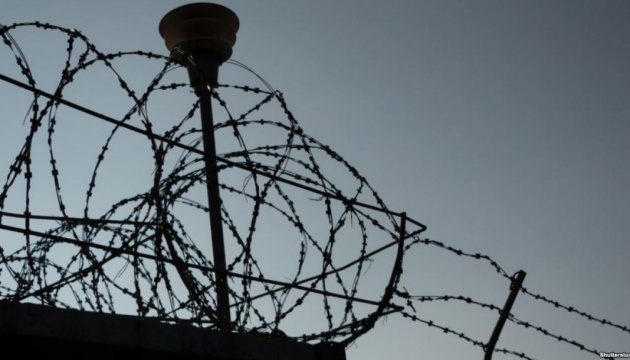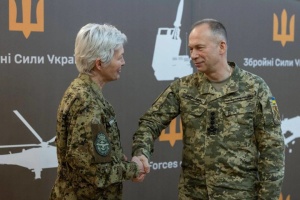
Gilmore: EU concerned about situation of detainees in occupied areas of eastern Ukraine
"I am glad to be in Kramatorsk [Donetsk region] and to be able to get acquainted with the situation in eastern Ukraine. I talked to civil society organizations, government officials and I hope to be able to see the situation on the ground," European Union's Special Representative for Human Rights Eamon Gilmore said in an interview with Dom TV channel, Ukrinform reports.
The European Union is very concerned about the human rights situation in the non-government-controlled areas, said the EU Special Representative for Human Rights.
"We are particularly concerned about the situation of imprisoned people because we have heard reports on torture of detainees, sexual abuse, and very poor conditions in the places of detention," Gilmore said.
He also called on the occupation authorities of the temporarily non-government-controlled areas in eastern Ukraine to greenlight international monitoring of places of detention and direct communication with detainees.
"And we call on the de facto 'authorities' of these areas to allow international monitoring of places of detention. So that, in particular, United Nations human rights mission will be able to inspect these places of detention and be able to communicate with detainees directly," Gilmore said.
As reported, on October 18, European Union's Special Representative for Human Rights Eamon Gilmore arrived in Ukraine on his first working visit. He visited Donetsk region. Gilmore studies the human rights situation in non-government-controlled areas.
Earlier, the Ukrainian Parliament Commissioner for Human Rights Liudmyla Denisova said that 426 Ukrainian citizens were being held in inhumane conditions in places of detention in the Russian Federation and in the temporarily occupied territories of Ukraine on trumped-up politically motivated charges.
Denisova also said that almost 450 more citizens were awaiting the transfer from places of detention in the temporarily occupied areas of Donetsk and Luhansk regions to serve their sentences in the government-controlled territory but the transfer process had been blocked for two years already.
ol





